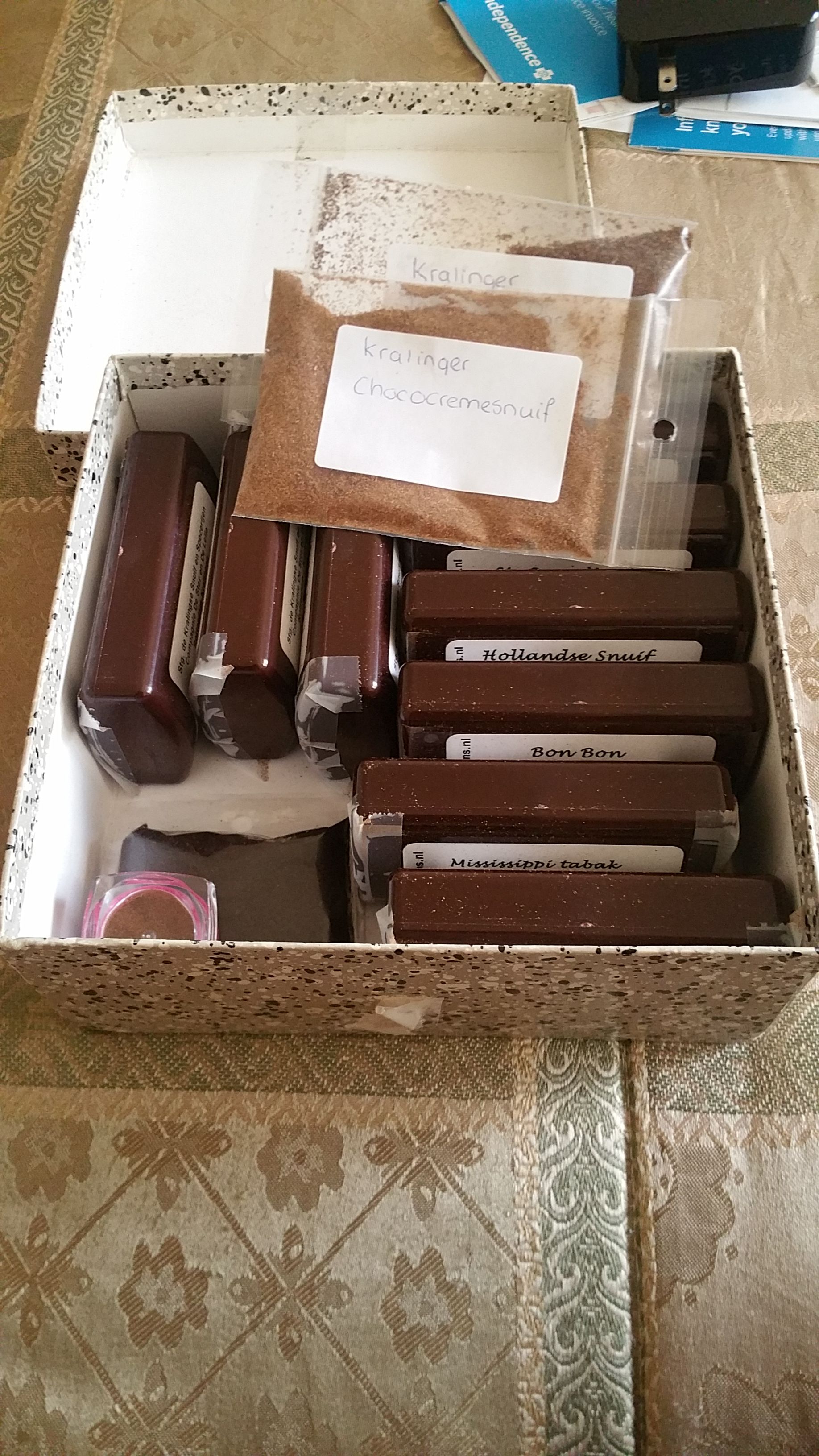Nasal Snuff: Revisiting a popular pastime of yesteryear

In the United States, when you mention snuff, most people think of Copenhagen, as the history of snuff is largely unknown here. However, in the United Kingdom and many parts of Europe, where nasal snuff is more readily available, it's well known that snuff began as a scented, pulverized tobacco one inhaled rather than placed in the mouth, which is interesting considering that its origins trace back to the Americas.
Fast forward about four centuries and an increasing number of tobacco regulations later, and the nasal snuff industry is by and large long gone, along with the overwhelming majority of its customer base. As a lover of all things tobacco for most of my adult life, once I'd become aware of it, I determined to give nasal snuff a try. The first problem I encountered was managing to find it. With few users in the modern day, locating a local retailer proved almost impossible, though Google ultimately saved the day. Though I'd intended to place a small order, given the shipping costs from the United Kingdom, I ended up spending about $80, and even as I clicked the "Confirm Order" button, noted that if it turned out nasal snuff didn't agree with me, I was likely to be hard-pressed to find someone to take it off my hands.
A few days later my package arrived, and I immediately tried a concoction called "Silver Dollar Cola". I was not at all impressed. Even to my uninitiated nose, this snuff was clearly old, and had lost almost all of the cola scent that it had supposedly been infused with. However, my experience with the apricot-scented variant was much better, and I was pleased to find that the overwhelming majority of the snuff I bought was decent to very good. This led me back to Google, where I ultimately found the Snuffhouse forum and increased the size of my stash to where I'm now set for life. As compared to what it would cost for a smoker to have enough cigarettes to last them the rest of their lives, my snuff collection set me back about $300, including shipping. Add to this the fact that, to date, there has been no link between the use of nasal snuff and cancer, and I'd say you've pretty much got a winner apart from the obvious issues one encounters when using snuff in public.
On those rare occasions I've publicly used snuff, I've gotten looks ranging from mildly curious to outright disgusted. On the even rarer occasions that I've convinced anyone else to try it though, it's always gone well. So far as I know, no one I've gotten to try it has quit smoking (and I've only ever offered it to smokers), but none has had a bad experience, so that's something. Unfortunately, it's not quite as easy to use as a cigarette, as both hands are required at least temporarily, and nasal drip accompanies certain variants, particularly those scented with menthol. That said, when my nose is clogged, absolutely NOTHING opens it up better than the heavily mentholated Hedges L260, which I've been made to understand was once prescribed by doctor's many moons ago in the United Kingdom. Apart from menthol, there is an extensive range of scents, chief among them fruits and florals, and differing textures, moisture levels, and tobacco-free herbal varieties besides. Catherine de' Medici's head would spin given all these options (she is said to have popularized the use of nasal snuff among the French nobility after finding it worked well to cure her recurring headaches).
While nasal snuff usage ultimately reached the common man in Europe, its use in America never extended beyond the well-to-do, which ultimately led to the first federal tobacco tax in 1794 and marked the beginning of the end for nasal snuff in the United States. By this time, Americans had begun placing pulverized tobacco inside the cheek as opposed to inhaling it, which is why snuff and "dip" are now synonymous in the United States. While the history of nasal snuff is very interesting, it's also very long and well covered by a quick visit to Wikipedia. What I want to do is make a few suggestions for those interested in giving it a try:
Swisher Honeybee Type: American Scotch
-scent is just like honey; very fine though and perhaps not for beginners
6 Photo Super Kailash Type: Indian
-scent is reminiscent of a mild rose incense with a hint of baby powder)
6 Photo Anarkali Type: Indian (rose incense scent)
-scent is that of a strong rose incense
Dholakia Plum Cake Type: Indian
-scent is said by some to be that of cherry; I find it indescribable but good
Bernard Klostermischung Type: German
-scent is that of rum and maple
Bernard Magic Moments Type: German
-strawberry scent, with hints of assorted other fruits
Bernard Zwiefacher Type: German
-another scent I find indescribable, but fantastic
Bernard Alkoholfrei Type: German
-beer scented- which I assure you is MUCH better than it sounds
Bernard Fichtennadel Type: German
-pine scented- literally smells just like Christmas
Silver Dollar Apricot Type: British
-apricot scented, obviously
Hedges L260 Type: British
-eye-opening, head clearing menthol scent
Toque Rustica Type: British
-smells like feet, but has the most powerful nicotine hit of any snuff)
Swedish Match Taxi Red Type: South African
-smells kind of like horse manure, but in a good way if that makes sense
Depending on where you reside, you'll probably to find a supplier who ships to your jurisdiction, but I've used Mr. Snuff exclusively despite the crazy high shipping charges. If you're interested, also be sure to check Snuffhouse.org and ask questions of the community there. I've found them very helpful on my journey through the world of nasal snuff.